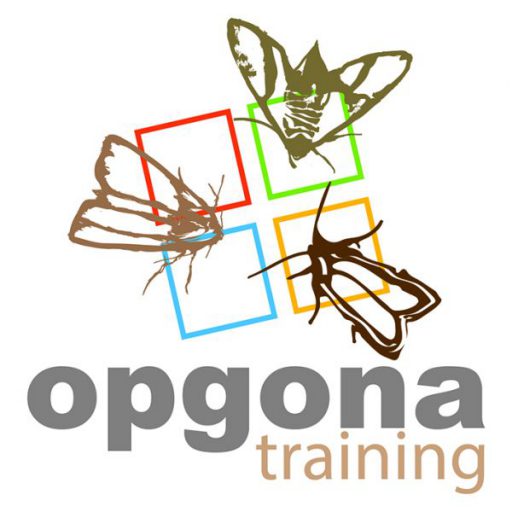On 7th of July 2021 UK-based Technology Management (TecMan) and Opgona started another journey of our Junior Developer Training as we reported in our previous post. This week this journey ended with Demo Friday where the students demo the result of their final assignment. Read on if you want to get to know how the students continued after week 2 and 3 and did get to this point.
week 4 – reporting, test automation, data exchange, data upgrade and SLQ matters
Due to the full online setup, not to overload the students and trainer too much, it was decided to spread week 4 over two weeks with only morning teaching:
- week 4a from 19th till 23rd of July, reporting and test automation
- week 4b from 16th till 20th of August, data exchange, data upgrade and SQL matters
As a nice spin off this allowed the students to get to work on the subjects more intensely in the afternoons.
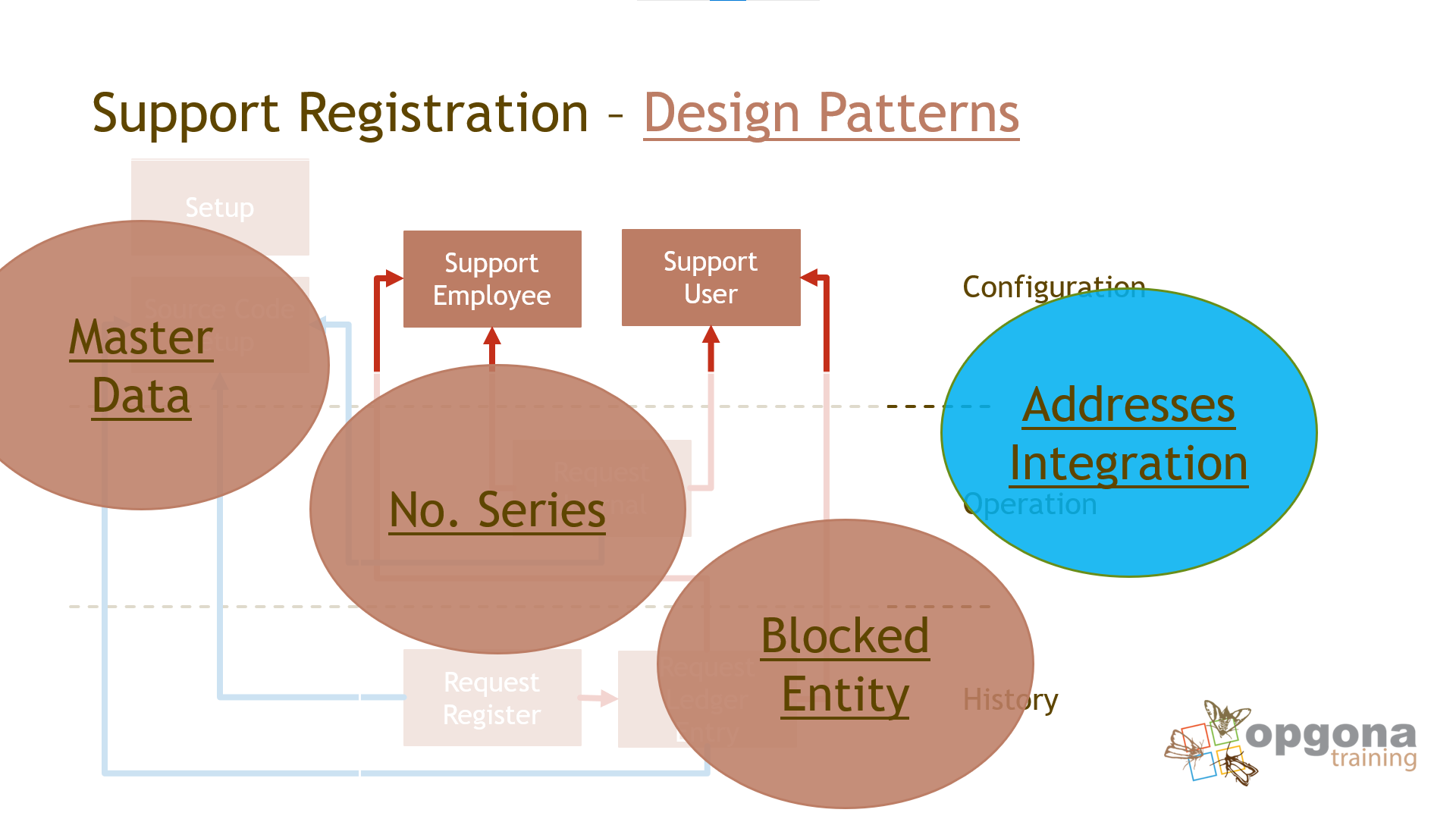
Week 4a started with a general review of the homework assignment after week 3: the Support Registration case. The code was delivered by each of the attendees on a mutually agreed upon deadline after which it was reviewed by the trainer. Each student individually did get a detailed feedback on the work delivered., and after the joined review on Monday morning, each student had to write a retrospect of the project him/herself answering questions like:
- How did you go about with the planning?
- Did you take into account the work others involved?
- Could you recollect things learned and discussed that you needed to apply?
- What did you finish and could have been delivered?
- (Feeling) Lone wolf or team member?
- How did you involve your stakeholder(s)?
- How did you go about getting clarification on various matters/details?
- What “shit hit the van” and how/when did you inform stakeholder(s)?
It was good to see how seriously this task was picked up showing that the students wanted to learn from their experiences and the feedback on it.
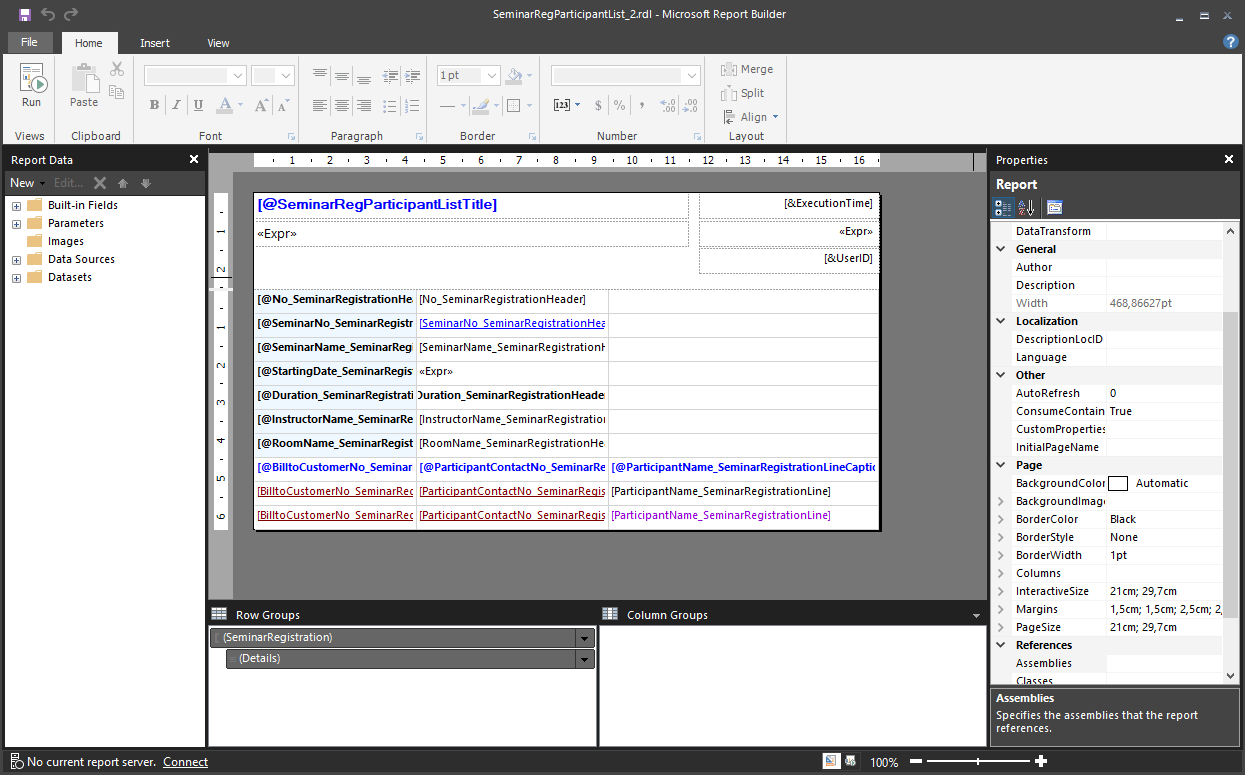
On Monday afternoon, Tuesday and Wednesday the group got introduced to and to work on reports, both printable – RDLC and WORD – and processing only. Even though in the basis a fairly easy to understand topic it’s always a challenge to grasp all this nuts and bolts that it entails. It seemed the students nevertheless got a hold on it. The remaining two days of this week were spent on test automation, the trainer’s favorite subject as you might know. It was interesting to see how the student went about working on this and some even continued with the subject in the following, intermediate weeks, leading to week 4b.
The first part week 4b was dedicated to data exchange: XMLports, queries and web services/APIs. On Monday, Tuesday and Wednesday morning the students got to extend the Seminar Registration module with a challenge to get data imported into Business Central through a journal with an XMLport. In this they had to tackle the complexity of data that could not be simply mapped to the Business Central data model and their first time use of a full-blown journal. Eventually they all got to get it working well.
Thursday was dedicated to data upgrade. The students had to implement a data upgrade process using data upgrade codeunits to transfer data after a data model aggregation in the Seminar Registration module.
On the last day of this week, and the last day on which new topics were “handed over” to the students, SQL related matters were discussed. Those things an Business Central developer might not be aware of, writing code in AL and not seeing any SQL queries, but does have an – indirect – influence on and as such not in the least affects the performance of Business Central.
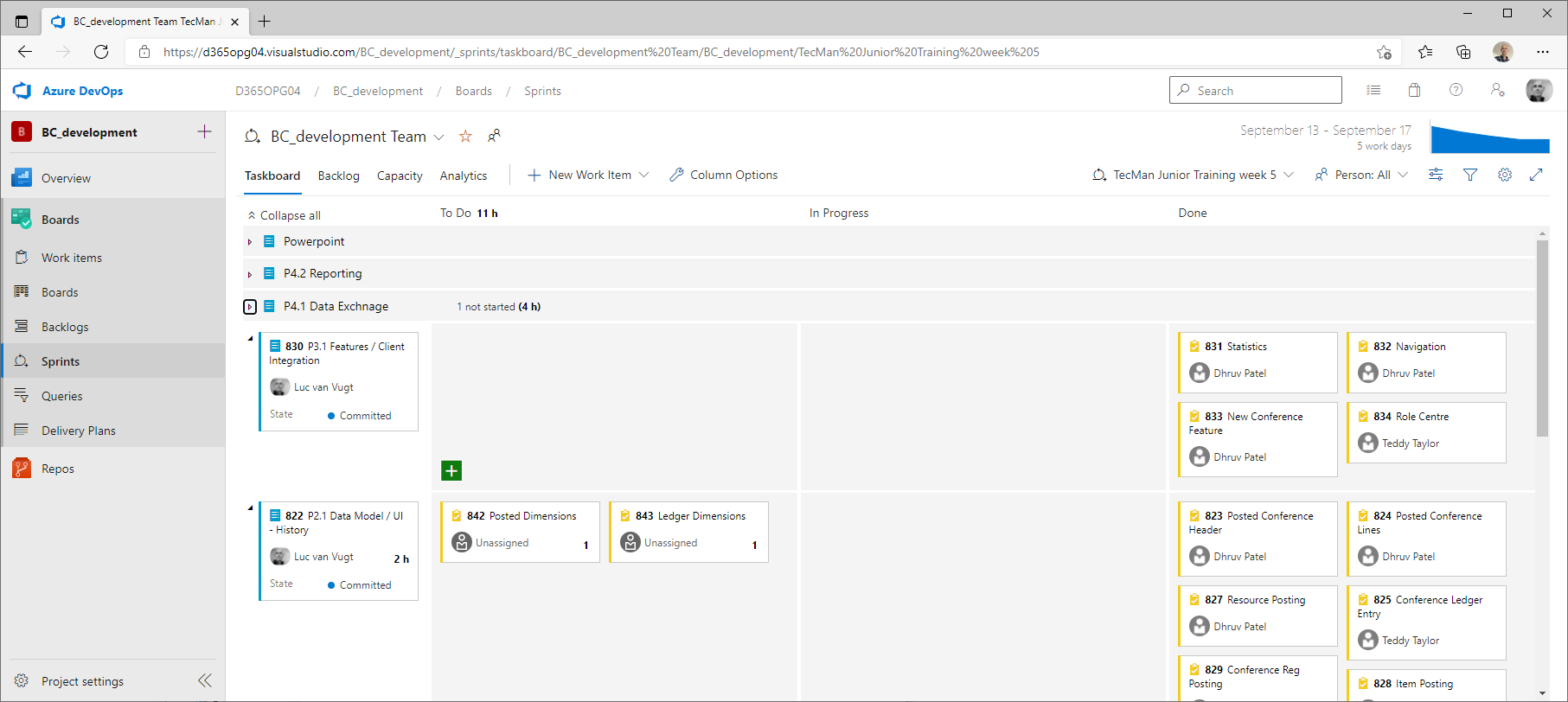
week 5 – integration project
After four weeks of learning a new programming languages and various of its ins and outs the students got to work in this final week on one big case, integration all things learned. On Monday morning they were introduced to the case by their trainer Luc van Vugt and the various high level requirements they had to fulfil. The group of 5 was dived into to two teams and were handed over the detailed requirements. It was now up to them as a team to get a good understanding of what was needed to be build, to prioritize their work and plan in in Azure DevOps. And eventually demo the outcome on demo friday to their mentors, developments manager and managing director. But before they got there, there was work to be done, their client to be included – being their trainer – and be in sync as a team. One part of this was their daily standup with the client sharing efficiently (1) what each team member had done the day before (2) what she/he was going to do today and (3) what she/he needed or was blocking the work. As an extra each team was to give one top and one tip the the other team member(s).
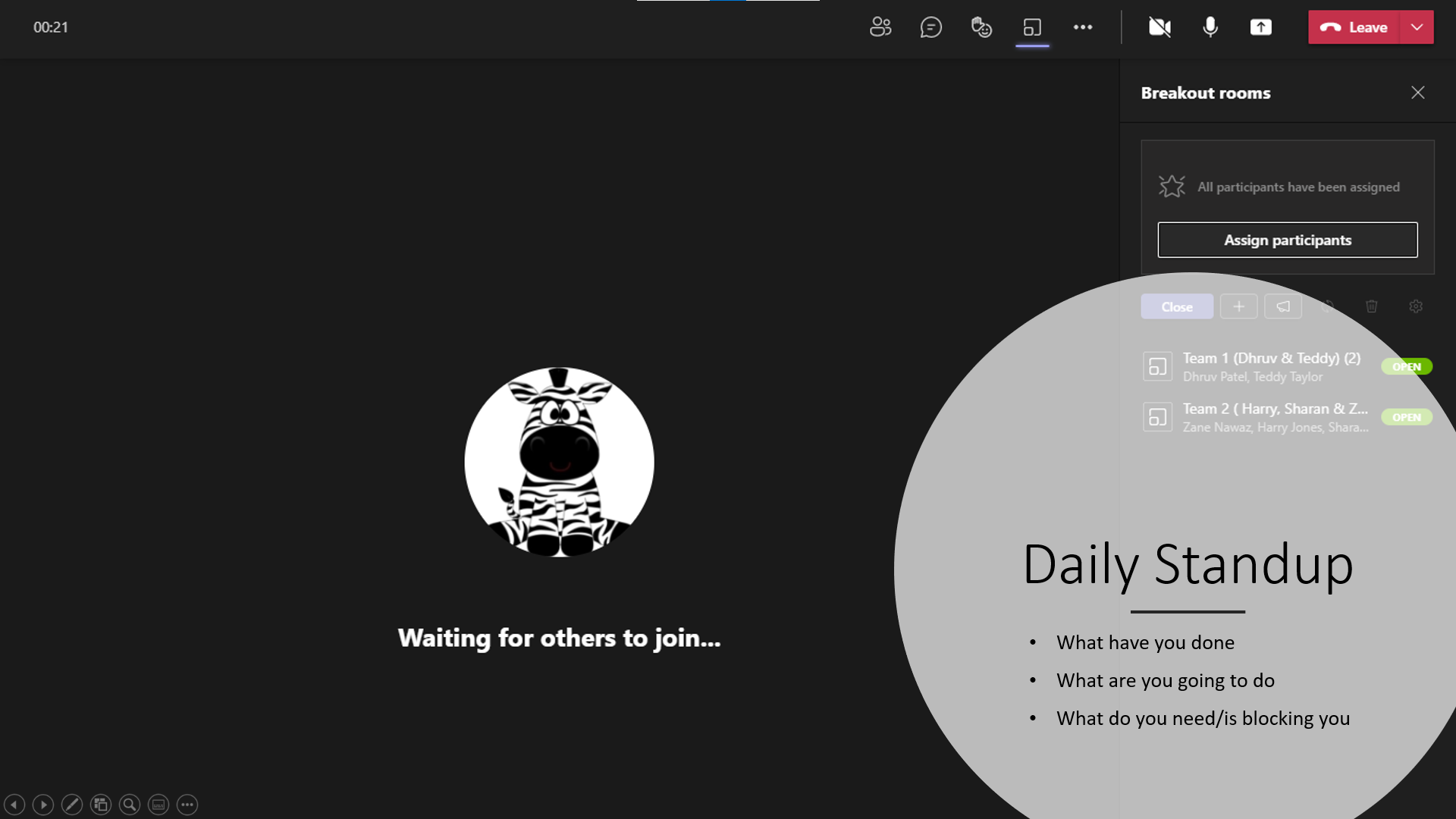
The major part of this project week went by smoothly, but like in normal live there always some hurdles to take and surely with client as critical as their trainer can be. Clearly both teams did a good thing in taking these hurdles. Big compliment to them.
demo friday
With demo friday nearing each team had to be stricter on their priorities and decide what things could still be included and what not. Not in the least taking into account what would show off best in the demo. Due some conflicts in agendas, however, the students were given one day more as the demo friday (afternoon) had to be postponed to Thursday a week later, 22nd of September. They really made use of this and on Thursday it was a feast to watch their demos getting praise from many sides, not in the least from their managing director James Crowter. Good job, guys. All compliments well deserved!
Interested after reading this resume?
Feel free to contact us at info@opgona.academy and get more insight into our Microsoft Dynamics 365 Business Central Junior training and how it can fit your needs.





